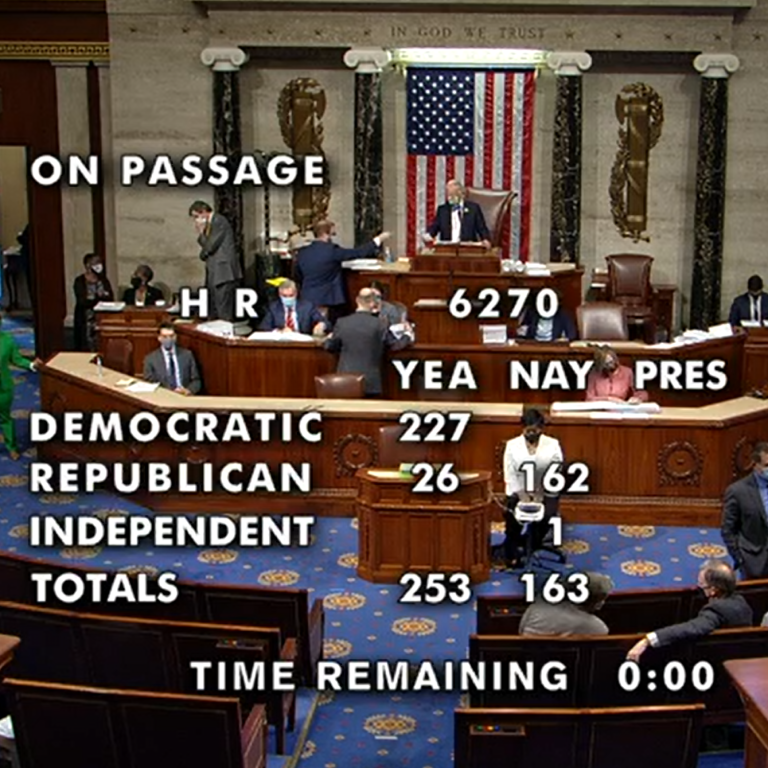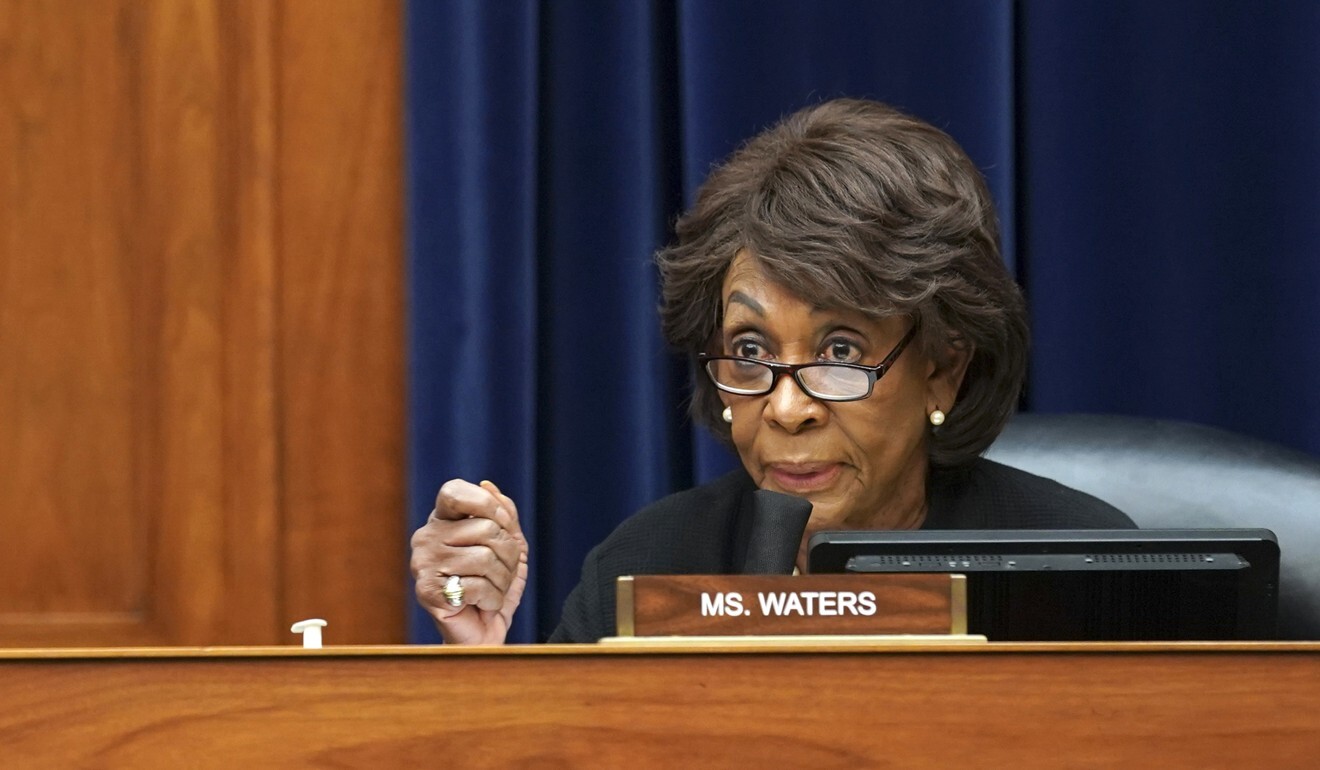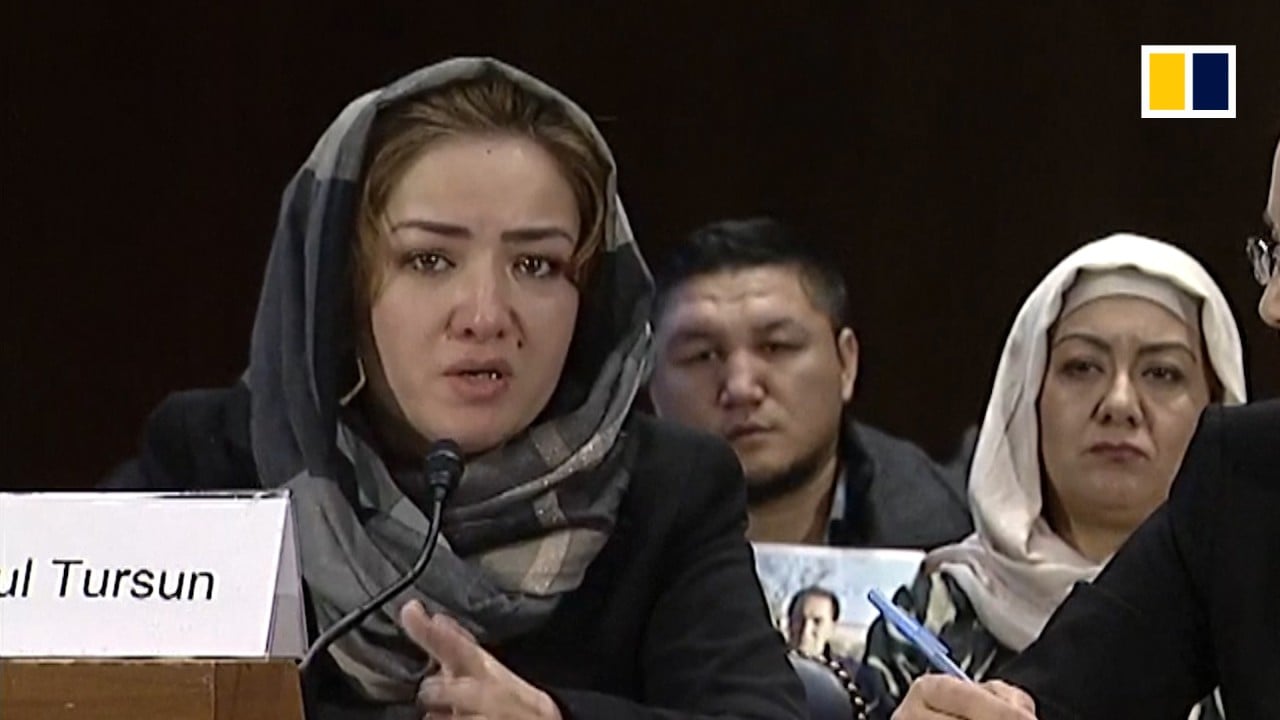
US House passes bill to force companies to disclose Xinjiang-sourced materials
- ‘We are not sympathetic to the fact that investors may lose money if in fact we stop slavery,’ says a Democratic congresswoman
- Republicans who oppose the legislation say it would constitute overreach by the US Securities and Exchange Commission
Lawmakers in the US House of Representatives approved legislation on Wednesday that would require publicly listed companies in the US to disclose commercial links to China’s Xinjiang Autonomous Uygur Region amid concerns about the use of forced labour there.
In contrast to numerous recent China bills that have drawn near unanimous support, the bill passed through the Democratic-controlled chamber along largely party lines. Republicans who opposed the legislation said it would constitute overreach by the US Securities and Exchange Commission (SEC).
After failed attempts by Republicans to drastically amend the bill, the Uyghur Forced Labor Disclosure Act passed by a vote of 253 to 163, with 26 Republicans breaking ranks to support it.
If enacted, the bill would compel listed companies to declare in annual reports whether they, or their affiliated entities, imported goods originating in Xinjiang or containing materials sourced there. The companies would also have to declare whether the goods were sourced from “forced labour camps” and, if so, how much revenue those products generated.
The importation of goods produced using forced labour is already illegal in the US, but backers of the bill hope that increased transparency about American entities’ involvement in the region will raise consumer awareness about the issue and force companies to rethink their supply chains.
The legislation now must pass in the Senate if it is to be sent to the White House before January, when this congressional session ends and all outstanding bills are wiped off the docket.
Beijing has denied the existence of forced labour in Xinjiang, where the United Nations believes more than 1 million Uygurs and other members of ethnic minority groups have been detained in a vast network of internment camps.
H&M cuts ties with Chinese supplier over Xinjiang forced labour accusations
Amid a growing body of scholarly research and media reporting alleging the existence of forced labour within or near those facilities, some Western companies have begun cutting their supply chains from the region, while the US government has blacklisted a number of suppliers.
Lawmakers have continued to call for a stronger response from the Trump administration; last week the House of Representatives passed a bill that would effectively ban all imports from Xinjiang.
Republicans gave near unanimous support to that bill, but said that the Uyghur Forced Labor Disclosure Act would overburden the SEC and hurt US investors and companies.

Representative Bill Huizenga said that Republicans were in “robust agreement” with Democrats about the need to combat forced labour, but argued that the issue was the purview of the State and Treasury departments.
Speaking on the House floor, Huizenga, a Republican from Michigan, accused Democrats of pushing through an “empty window dressing bill that hurts US investors and companies but unfortunately simply pays lip service to the Uygurs”.
Democrats, meanwhile, argued it was only reasonable that listed companies be subjected to heightened scrutiny when there were concerns over forced labour.
China slammed by West over Hong Kong and Xinjiang at UN rights forum
“It’s one thing to have forced labour, but to have American companies benefit from that forced labour, it’s sinful,” said Representative Al Green of Texas.
“We cannot be sympathetic to any argument that talks about [how] it’s going to inconvenience investors and American companies,” said California’s Maxine Waters, who on several occasions invoked the United States’ historic enslavement of black people – including her ancestors – to make a case for the legislation.
“No, we are not sympathetic to the fact that investors may lose money if in fact we stop slavery.”

02:08
Uygur woman describes torture in China’s Xinjiang ‘vocational training’ camps
As well as criticising the substance of the bill, Republicans have also accused its author, Representative Jennifer Wexton, of introducing the legislation to help her hold on to her northern Virginia constituency – home to a large ethnic Uygur population – in November.
“This is about the Uygur people,” Wexton, whose seat is considered safe, said on the House floor in response to the charges. “This is not about me, this is not about an election.”
Rights groups welcomed the passage of the bill, which had stirred opposition from not only Republican lawmakers but also the powerful US Chamber of Commerce.
“The bill illustrates that effectively combating Uygur forced labour will inevitably require genuine engagement from American companies,” said Omer Kanat, executive director of the Washington-based Uyghur Human Rights Project. “If the companies themselves refuse to act, it’s up to our government to compel them to do so.”

